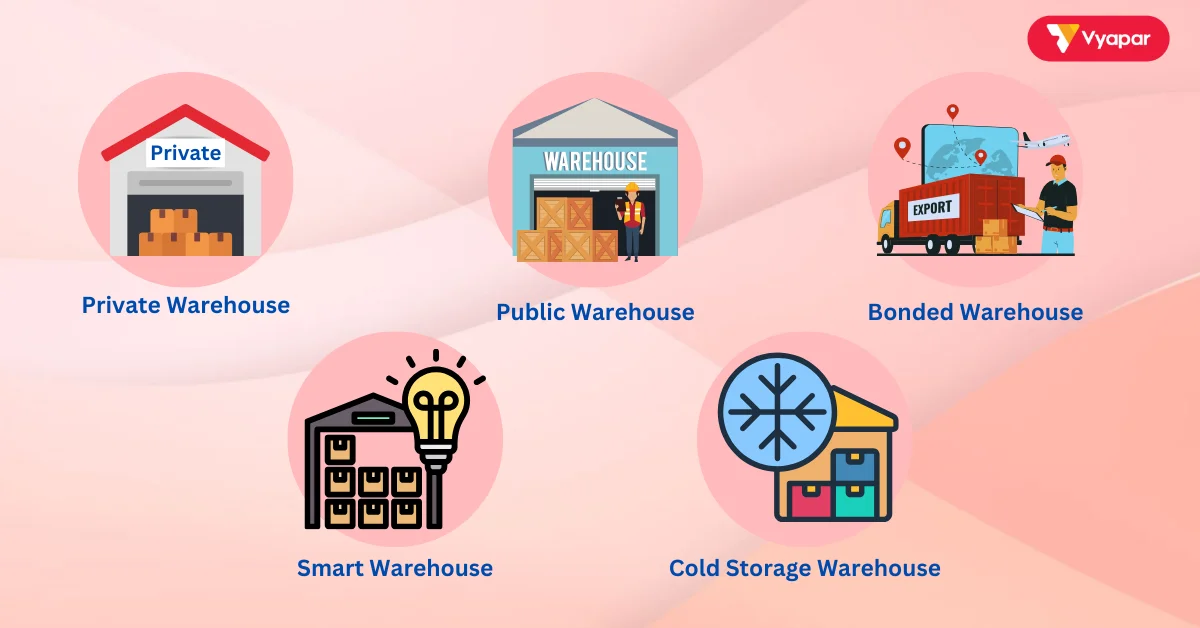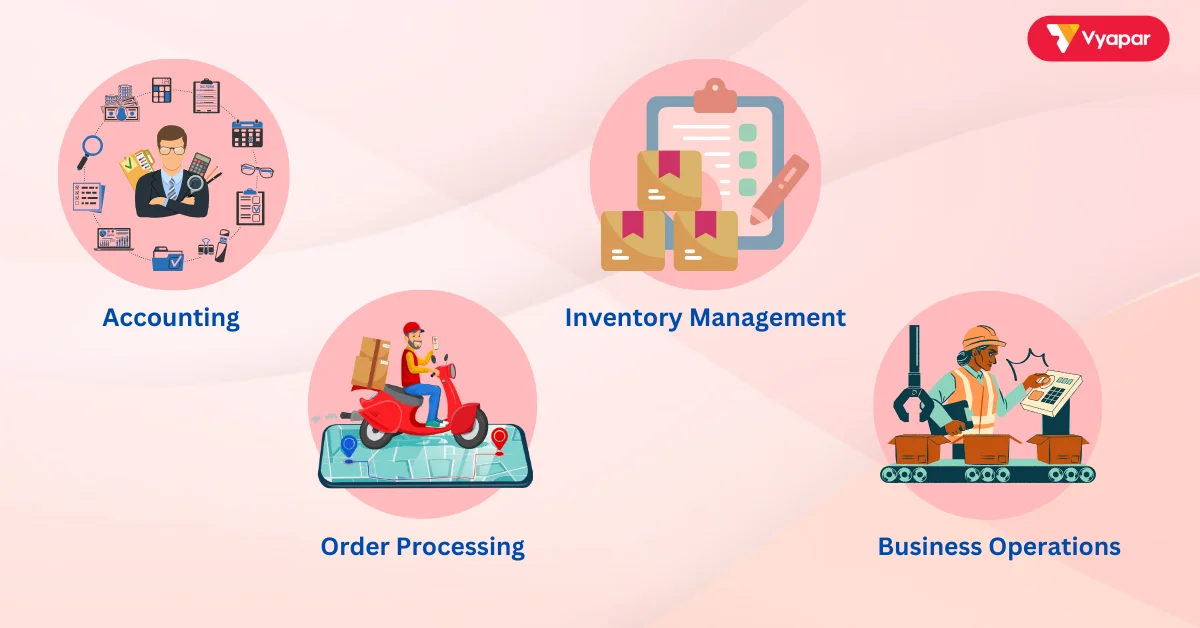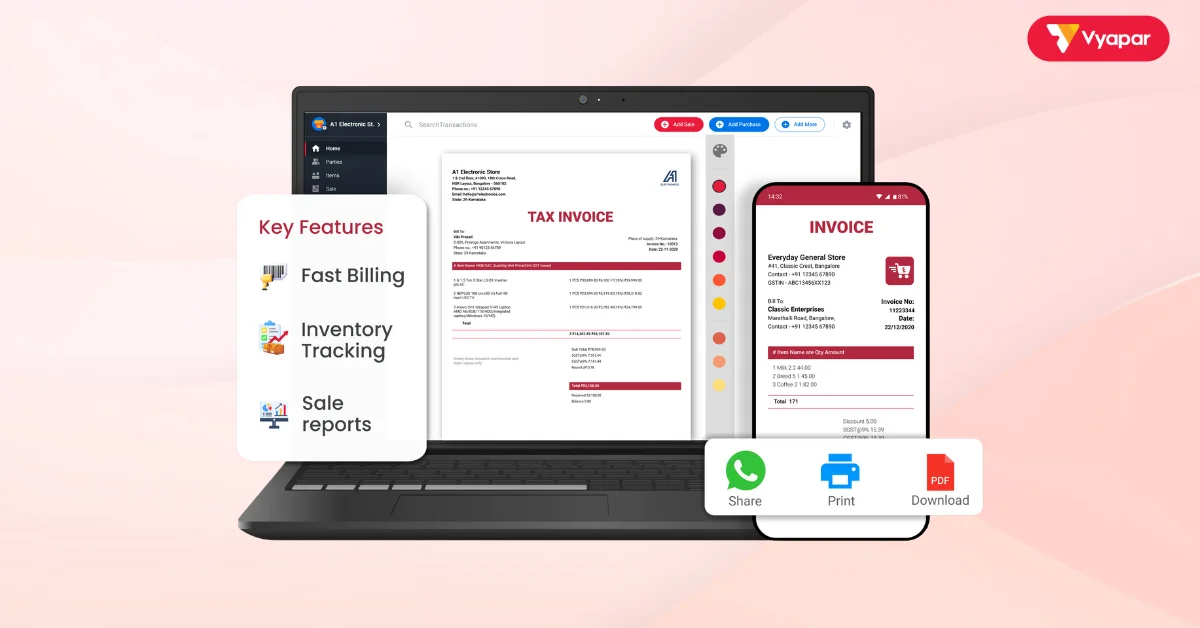What is a Warehouse? and its Importance
Estimated reading time: 9 minutes

A warehouse is a place to store goods, materials, and inventory. It keeps them safe until someone needs them for sale or distribution. Godowns are vital for businesses to manage large quantities of products efficiently.
For small and medium-sized businesses (SMEs) in India, access to a godown can improve operations. It can also lower costs and keep customer service strong. A well-organized godown ensures that goods are always available when needed, making business processes smoother and more reliable.
Definition and Explanation
A Godown serves as a building or area where people store goods before they sell, distribute, or use them. It acts as a hub for managing inventory, ensuring that products are safe and in good condition.
Inventory houses come in various forms, such as general storage facilities, cold storage, or bonded Inventory houses. These spaces are important for businesses that handle a lot of goods. They help with inventory control and order processing.
Example:
Envision a toy shop proprietor who purchases toys wholesale from a producer. Rather than storing the toys in the shop, the employees keep them in a storehouse.
When customers place orders, employees get the toys from the storehouse. They bundle the toys and transport them to the retail outlet or straight to consumers. This process ensures efficient use of space and better organization.
Key Takeaways on Warehouses
✅ Efficient storage space: Godown provide a secure and organized location to store goods. This avoids clutter and ensures products are easy to find when needed.
✅ Better inventory management: Storehouse helps businesses track their inventory levels. In this manner, they understand when to replenish or reorder merchandise. This prevents running out of stock or overstocking items.
✅ Cost-effective operations: A godown can lower transportation costs. It stores products closer to customers or distribution centres. This conserves both time and financial resources.
✅ Improved customer service: Quick access to goods in a storeroom helps businesses process and deliver orders faster. This maintains customer satisfaction.
Types of Warehouses

- Private Warehouse. Large businesses that deal with significant volumes of goods typically use these. For example, a furniture company may have a private storeroom to store its products before delivering them to customers.
- Public Warehouse: Public storehouses are open for use by multiple businesses. They are ideal for small businesses that need temporary or affordable storage space. A small retailer might rent godown space during the holiday season to stock up on extra inventory.
- Bonded Warehouse: It serves as a secure facility where businesses store imported goods until they pay customs duties. This helps businesses manage international shipments without immediate financial burden.
- Smart Warehouse: A smart storage hub uses advanced technology like robots and automated systems to manage goods. This reduces errors and speeds up order processing, making it a popular choice for e-commerce companies.
- Cold Storage Warehouse: Cold storage godowns keep perishable goods like fruits, vegetables, and medicines at low temperatures. This ensures the quality and freshness of products.
Importance of Warehouses

- Improves Supply Chain Management: Storehouses act as distribution centres. They let businesses keep goods closer to customers or sales points. This reduces delivery time and ensures products are available when needed.
- Prevents Stock Shortages: By managing inventory levels effectively, inventory rooms ensure that products are always in stock. This prevents delays in order processing and avoids disappointing customers.
- Enhances Scalability: As businesses grow, they often need more storage space to handle increased inventory. Inventory houses provide the flexibility to accommodate growth without disrupting operations.
- Protects Goods: The storehouse keeps goods safe from damage, theft, or harsh weather conditions. Properly designed storage space keeps products in good condition until someone needs them.
Benefits of Warehouses for SMEs

- Reduces Costs: Using a storehouse is a cost-effective way to store goods. Businesses can save time and money by centralizing storage in one location. This way, they avoid frequent transportation and rent multiple small spaces.
- Better Organization: Godown allows businesses to organize their products systematically. For example, you can store items based on categories, which makes it easy to locate and retrieve them when needed.
- Improves Customer Satisfaction: Storehouses ensure that products are always available, helping businesses fulfil orders quickly. Fast delivery improves customer service and builds trust with customers.
- Supports Seasonal Needs: Small businesses often face fluctuating demand during festivals or sales seasons. Inventory houses provide the extra storage space needed to manage large quantities of goods during such periods.
How Warehouses Are Used in Business

- Accounting: Warehouses help businesses track the value of their stored goods as part of their financial records. This is important for understanding the overall assets of the business.
- Inventory Management: By monitoring inventory levels, the stockroom allows businesses to restock products before they run out. This reduces the risk of losing customers due to unavailable items.
- Order Processing: Warehouses play a key role in the order processing cycle. Workers pick, pack, and ship goods from the godown, ensuring accurate and timely delivery.
- Business Operations: Warehouses improve overall business operations by providing a centralized location for managing goods. This simplifies logistics, reduces errors, and ensures smoother workflows.
How Vyapar Helps with Warehouse Management

Vyapar offers warehouse inventory management software with advanced features to simplify business operations for SMEs:
- Real-Time Inventory Tracking: Know exactly how much stock is available in your warehouse space. This helps avoid overstocking or stockouts.
- Automated Stock Reports: Generate detailed reports on inventory levels, sales, and storage space usage. These insights help in making smarter business decisions.
- User-Friendly Interface: Vyapar app’s easy-to-use platform ensures even non-technical users can manage warehouses efficiently.
- Cost-Effective Solution: With Vyapar, small businesses can manage inventory and warehouse operations without needing expensive tools or software.
Using Vyapar, businesses can streamline their warehouse management, improve customer service, and focus on growing their business operations.
Are you a Business Owner?
Take your business to the next level with Vyapar! Use free trail!
Try our Android App (FREE for lifetime)
FAQ’s
A warehouse provides secure storage space for goods, helping businesses manage inventory and improve order processing.
Warehouses offer cost-effective solutions for storing goods, reducing transportation costs, and ensuring faster delivery to customers.
Importers store goods in bonded warehouses until they pay customs duties. Public warehouses are shared spaces for temporary storage by businesses.
Yes, Vyapar has features like inventory tracking, stock reports, and order management. These tools make warehouse operations easy and efficient for small and medium-sized enterprises (SMEs).
Smart warehouses use automation to speed up processes like inventory tracking and order processing, reducing errors and saving time.
Cold storage warehouses keep perishable goods fresh, protecting their quality and extending their shelf life.
Related Posts:










